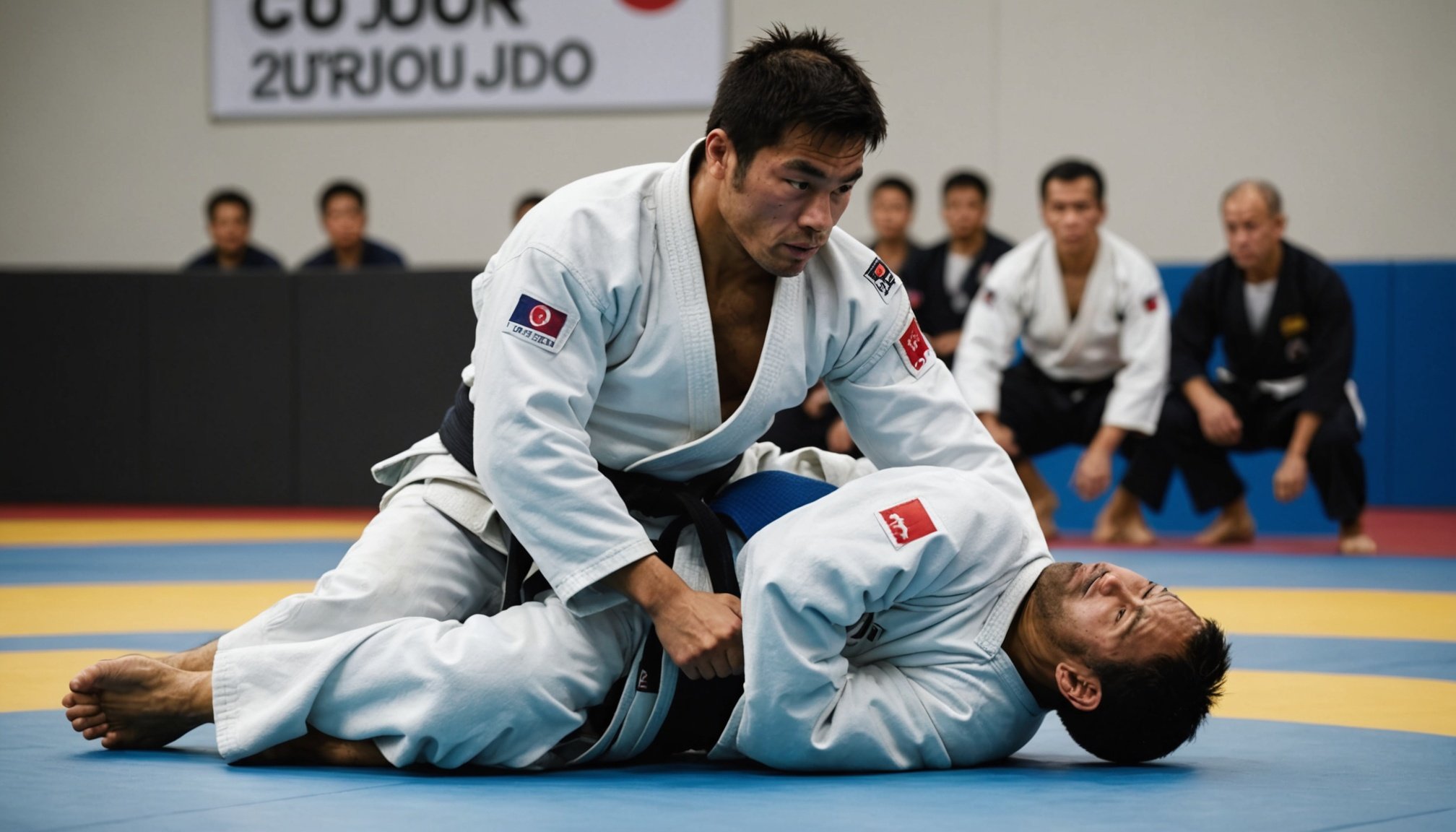In the world of judo, the mind is as formidable a weapon as the body. While physical prowess and technical skill are undeniably vital, the psychological edge can make the difference between victory and defeat. As you step onto the tatami, it’s not only about strength or speed but also about strategy, focus, and mental resilience. This article delves into the psychological tactics that can tip the scales in your favor during a judo match. We will explore techniques to maintain composure, employ mental strategies, and harness the power of mental imagery to optimize performance. Through understanding and implementing these tactics, judokas can enhance their competitive edge and achieve their full potential on the mat.
Harnessing Mental Imagery
When stepping onto the judo mat, visualizing success can be a powerful tool to steer your performance. Mental imagery involves creating vivid mental pictures of what you intend to achieve. This tactic is not just about seeing yourself executing perfect throws or holds; it is about experiencing the entire sensory journey, from the feel of the judogi to the ambient sounds of the competition.
Also read : How can recovery practices like foam rolling aid in a fighter’s performance?
Cultivating Self-Belief
Many judokas employ mental imagery to build confidence. Visualizing successful techniques can help reinforce self-belief, setting a positive mindset before a match. This psychological rehearsal allows you to foresee potential challenges and mentally practice overcoming them, reducing anxiety and enhancing readiness.
Fine-Tuning Techniques
Using mental imagery, you can hone specific techniques without physical exertion. By envisioning each move with precision, your brain becomes wired to perform the action more effectively when executed in reality. This method acts as a mental drill, aiding memory retention and technical refinement.
In the same genre : How can beginner boxers improve their footwork for better agility in the ring?
Creating Anticipation
Envisioning scenarios where you anticipate your opponent’s moves prepares you to react instinctively. By mentally replaying potential outcomes, you reduce the element of surprise, allowing you to stay composed and adapt quickly during an actual match.
Harnessing mental imagery is not about daydreaming but about preparing your mind for the challenges ahead, ensuring you’re mentally poised for victory.
Building Emotional Resilience
In the high-stakes world of judo, the ability to remain calm and composed can be the deciding factor in a match’s outcome. Emotional resilience is about controlling your emotions under pressure, maintaining focus amidst chaos, and bouncing back from setbacks.
Staying Composed
Your opponent’s strategies might include unsettling you emotionally. A sudden change in pace, an unexpected move, or even a momentary lapse can rattle your concentration. Practicing mindfulness helps in maintaining composure, allowing you to stay centered and focused.
Managing Stress
Competitive environments naturally induce stress, which can impair performance. Techniques such as deep breathing, meditation, and positive affirmations can help manage stress levels. By cultivating a state of calmness, you ensure your mental faculties are sharp and ready to respond effectively.
Learning from Adversity
Adversity is an inherent part of competitive sports. Bouncing back from mistakes or losses is crucial. Developing a growth mindset where failures are seen as learning opportunities fosters resilience. By analyzing what went wrong, you can refine your strategy for future matches.
The emotionally resilient judoka is one who acknowledges their feelings but does not allow them to dictate their performance. By mastering emotional resilience, you can maintain the mental clarity needed to outwit your opponent.
Exploiting Opponent’s Weaknesses
Psychological tactics in judo extend beyond self-preparation; they also involve keen observation of your opponent. Understanding and exploiting their psychological vulnerabilities can provide a significant advantage.
Reading Body Language
Observing your opponent’s body language can offer insights into their emotional state. Signs of anxiety or frustration, such as fidgeting or erratic movements, can be indicators of underlying weaknesses. By identifying these, you can exploit them by increasing the pressure or shifting tactical focus.
Creating Doubt
Skilled judokas can strategically unsettle their opponents’ confidence. By employing unexpected moves or altering your fighting rhythm, you can create doubt in your opponent’s mind, making them second-guess their strategy.
Mind Games
Psychological gamesmanship can be subtle yet effective. A well-timed glance, a prolonged gaze, or a verbal remark can disrupt your opponent’s focus, giving you a mental edge. While these tactics require finesse, they can throw your opponent off their game.
The key lies in balancing respect for your opponent with using their hesitations to your advantage. Understanding your opponent’s psyche allows you to control the match’s flow and seize opportunities as they arise.
Cultivating a Winning Mindset
A winning mindset is an amalgamation of confidence, determination, and strategic thinking. It is not merely about believing you can win but about preparing your mind to face any scenario with poise and precision.
Setting Clear Goals
Before stepping onto the mat, it’s essential to set realistic and clear objectives. Whether it’s executing a specific technique or maintaining defensive strength, knowing your goals helps keep you focused and driven.
Visualizing Success
Believing in the possibility of success is vital, and visualizing that success can reinforce this belief. This isn’t about overconfidence but about priming your mind to perform at its best under pressure. A clear image of yourself as the victor can boost motivation and focus.
Maintaining Positivity
A positive attitude can improve performance significantly. Embrace optimism, but ground it with the understanding of inherent challenges. Negative thoughts can cloud judgment and impede performance, so maintaining positivity is key.
Adapting to Change
Flexibility in mindset means being prepared to adapt strategies as the match unfolds. Rigidity in approach can be detrimental, while adaptability ensures you can respond to varying situations, keeping your edge sharp.
Ultimately, cultivating a winning mindset is about mental preparation, resilience, and the unwavering belief in your capabilities.
In the realm of judo, achieving superiority is not confined to the physical domain but extends deeply into the psychological. The tactics discussed—mental imagery, emotional resilience, opponent analysis, and mindset cultivation—equip you with tools to heighten your competitive edge. As you harness these psychological strategies, you not only enhance your performance but also embody the true spirit of judo. The path to mastery involves both physical agility and mental fortitude, ensuring that you can outsmart and outmaneuver your opponents with confidence and grace. Embrace these insights, and let your mind become as formidable as your throws.











